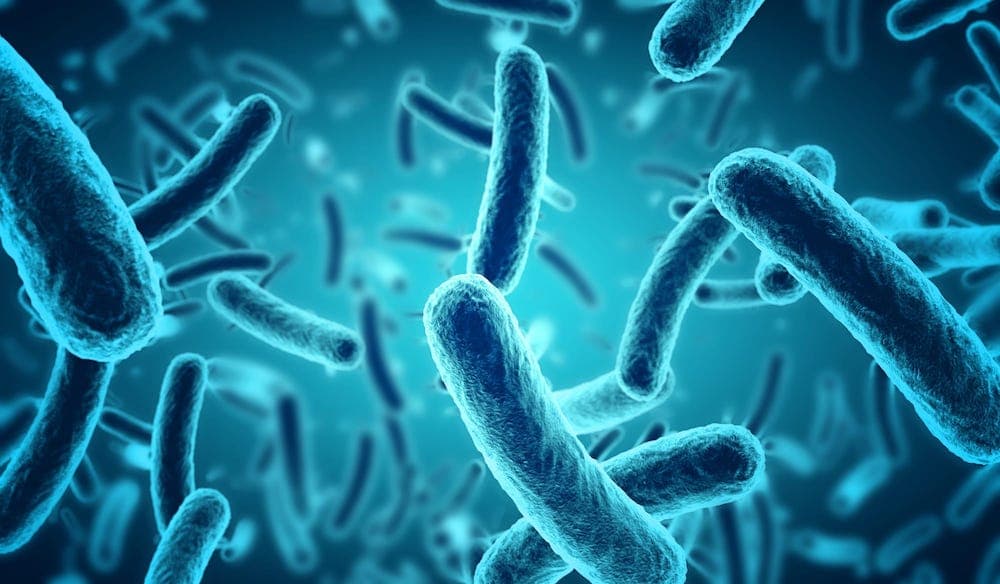We share a significant portion of our lives with pets: sloppy kisses, food scraps, exercise, and sleeping space. With so much overlap, other aspects of health such as maintaining immunity and keeping a healthy weight are also bound to have some similarities. Humans and pets have a closer relationship than we initially thought, especially when it comes to the bacteria that live in their gut.
Much research has gone into the impacts of pets on the lives of humans and often makes headlines with extolled helpful effects. According to the CDC1, pet parents benefit from positive influences on mental health by providing more opportunities to socialize and decreasing loneliness. Interestingly, more recent research has found that having pets may affect more than just their overall happiness.
Studies report benefits like decreased cholesterol levels and blood pressure. Even more intriguing is the finding that having pets early in life2 may have protective effects against allergies, perhaps by altering the bacteria that live in an infant’s intestines, called their gut microbiome.
Microbiomes, or the bacteria, viruses, and other microbes that inhabit living organisms impact a spectacular portion of daily life. While we generally think about the types that make us sick, animals, like humans, are home to trillions of bacteria that help digest food, shape immune systems and maintain a healthy weight.
Estimates predict that humans are made up of more bacterial cells than human ones, and each individual is different. All living organisms play host to assorted bacterial species: some make us more susceptible to different diseases (like inflammatory bowel disease) or affect our ability to digest certain foods like lactose and fiber.
But what do we know about the microbiome of our furry companions? How does their microbiome affect their health?
The short answer: it likely affects them in the same ways it does humans.
Microbiomes shape immune systems
Bacteria can help your pet stay healthy with a well-formed immune system that keeps potential diseases in check. Although to date this not yet been well-studied in companion animals, bacteria that colonize humans can protect them3 from pathogenic infections by competing for nutrients to grow. When foreign bacteria are introduced into tissues, like our skin, beneficial bacteria already thriving in that area will prevent the intruder from using necessary nutrients to start colonizing the same spot.
In a similar vein, the microbiome can prime the immune system, so that it is ready to act should the individual be exposed to a pathogen. Microbial imbalance can not only make us more susceptible to pathogenic infections, but also to chronic diseases that are caused by excess inflammation like cancer or type 1 diabetes. Scientists are intrigued by the prospect of using interventions, like diet, to treat such disorders by changing interactions between the host microbiome and immune system.
microbial composition is affected by diet
Even more important than giving your cat or dog exercise is making sure they have a healthy diet. Not only does this ensure that they can digest all the proper nutrients to stay healthy and active, a recent study found that the composition of a dog’s diet influences the microbial balance in the gut4. As gut microbes have been associated with maintaining a healthy weight, this has huge implications for managing pet obesity, which is on the rise according to the Association for Pet Obesity Prevention5.
According to data from 2017, 60% of cats and 56% of dogs in the United States are overweight or obese. This is not to say that the gut microbiome causes a pet to be obese, but altering the composition through a healthier diet could help pets lose extra pounds. Obese dogs consuming a high-protein, low-carbohydrate diet see a huge shift in the types of bacteria that make up their gut microbiome. Studies into the relationship between microbes and diet not yet been well-studied in companion animals, so following future gut microbiome research is crucial to know how to best take care of our pets.
Pets may hold the answer to understanding more about our own gut microbiomes
The human microbiome has been well-studied in recent years, particularly as scientists have acquired a deeper appreciation for the role it plays in human health, while animal microbiome research lags far behind. Nevertheless, human and dog microbiomes may be more similar than anticipated6. The reasons for this similarity are still not known but may be related to dog domestication and sharing food sources with humans.
Gaining a better understanding of the bacterial composition of a dog’s gut is not only beneficial to keep our beloved pets healthy, but it may also help us learn more about our own microbiomes. As this facet of microbiome research expands, we will be able to appreciate the importance of knowing what food is best for our pets and how their diet may impact their overall health as well as ours.
References
1. About Pets & People | Healthy Pets, Healthy People | CDC. (2018). Available at: https://www.cdc.gov/healthypets/health-benefits/index.html. (Accessed: 5th December 2018)
2. Tun, H. M. et al. Exposure to household furry pets influences the gut microbiota of infant at 3-4 months following various birth scenarios. Microbiome 5, 40 (2017).
3. Thaiss, C. A., , N., Levy, M. & Elinav, E. The microbiome and innate immunity. Nature 535, 65–74 (2016).
4. Li, Q., Lauber, C. L., Czarnecki-Maulden, G., Pan, Y. & Hannah, S. S. Effects of the Dietary Protein and Carbohydrate Ratio on Gut Microbiomes in Dogs of Different Body Conditions. MBio 8, (2017).
5. Association for Pet Obesity Prevention. Association for Pet Obesity Prevention Available at: https://petobesityprevention.org/. (Accessed: 5th December 2018)
6. Coelho, L. P. et al. Similarity of the dog and human gut microbiomes in gene content and response to diet. Microbiome 6, 72 (2018).




